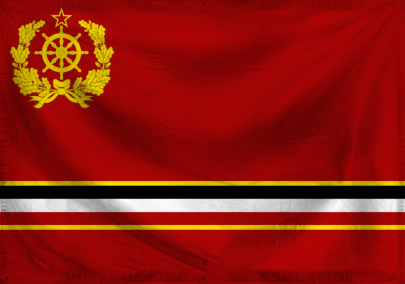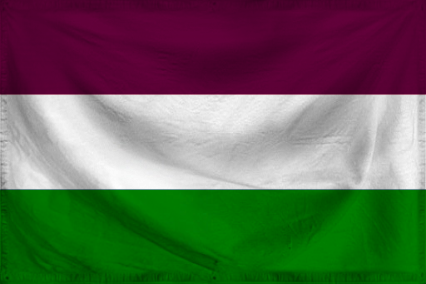OFFICE OF THE HIGH COMMISSIONER OF ESPERANCE INTERNATIONAL
Lux in Tenebris
To: Whom It May Concern
From: The Office of the High Commissioner, Esperance International
Re.: International Relations With Esperance International
Encryption: NoneIntroduction
Esperance International is an independent and private nonprofit organization whose purpose is to provide humanitarian aid of all kinds to all people who need it. We offer aid ranging from emergency delivery of food in warzones, to research into public health policy, to administration of museums and cultural heritage sites. With more than 2.4 million “permanent” employees – personnel who sign 25-year contracts, receive full benefits, and can participate in Esperance International’s corporate democracy – we are the largest humanitarian aid organization in the world, and one of the largest private organizations of any kind. With an annual operating budget of more than 650 billion Universal Standard dollars, we are capable of tackling head-on humanitarian crises that would otherwise be insoluble.
Since our foundation in 1925, we have served more than 500 billion free meals; treated more than 100 billion patients; educated more than 70 billion children; built more than ten million kilometers of roads, railways, and bridges; founded more than one thousand museums and thirty-three universities; saved more than 500 plant and animal species from extinction; provided evidence leading to the conviction of more than a hundred persons for crimes against humanity; deployed neutral peacekeepers to nineteen conflict zones; and mediated peaceful ends to nine major wars and more than fifty civil conflicts. While we are far from infallible, when we cooperate with local people in a spirit of humility, we have been able to do substantial good in the world.
Since the New Prospect Purchase of 1946, Esperance International has been headquartered on a privately owned island, outside the jurisdiction of the laws of any one nation. This means that, while most Esperance International employees – or “Esperancers” – live and work outside New Prospect, Esperance International as a whole is regarded as a sui generis entity: a full subject of international law, with rights and responsibilities analogous to those of states, that is not itself a government defined by territorial sovereignty. The only other such entity to play a major role in the world is the Holy See.
Thus, while individual Esperance personnel are of course obliged to abide by the laws of the countries in which they live and work, Esperance International as a whole is not subject to any government; it pays no taxes and abides by no national laws. As a result, Esperance International is entirely and deliberately neutral: no state has economic, diplomatic, or geopolitical leverage over it, and because Esperance International is not itself a state, it has no national interests of its own. So the governments and people of the world can trust us when we say that we have no objective but to serve humanity.Important Information
Nevertheless, we rely at every level on the support of sovereign states; they help to fund us, guarantee our independence, and connect us with people who need our help. It is for this reason that I am contacting you today. The questionnaire attached to this communiqué represents our best effort to assess how Esperance International is currently working in your country, how your government and people are assisting us in our work, and how we can work more closely and effectively for the good of all. I am grateful to you for taking the time to fill it out. However, in order to understand fully the communiqué as it is written, you may require some additional information about Esperance International’s structure and bylaws.
First, you must understand that the work of Esperance International in any given nation is coordinated either by a station or by a bureau. While EI’s various commissions provide specialized personnel and run particular projects, the station or bureau in your country includes all of those personnel and all of those projects; it is the overall presence of Esperance International in each nation where we work. Both bureaus and stations include representatives of most Esperance International commissions; this means each station or bureau includes personnel from both those commissions responsible for EI’s work in the world, and those commissions responsible for EI’s internal structure and affairs.
Despite all of this, stations and bureaus are not the same. The decision whether to authorize an Esperance International station or an Esperance International bureau in your nation is important for your people and for Esperance International.Regardless of whether Esperance International is represented by a bureau or by a station, all Esperance International operations within sovereign states are predicated upon three preconditions, which must be accepted by your government in order for us to begin or continue work in your country. These preconditions are known as the Three Rules, and you should consider them carefully before deciding whether to complete the questionnaire below.
- In most countries where Esperance International operates, it is represented by a bureau. Bureaus are permanent in nature, and they are ideal if you foresee a long-term role for Esperance International in your nation. They overwhelmingly employ local people; thus, a bureau in your nation is only plausible if you allow your citizens to serve as Esperance International permanent employees. Most Esperance employees spend their entire career in a single bureau, usually in their home country; they are pillars of local communities, and fully integrated into local society. Bureaus are not focused on any particular crisis; rather, they run a vast array of long-term projects, from schools to hospitals to libraries to homeless shelters. Most bureaus are very large; the smallest includes at least fifty thousand permanent employees and many local auxiliaries.
- Esperance International stations operate in countries in the grip of major crises, and are focused primarily on responding specifically to that crisis rather than on supporting diverse long-term aid projects. Stations are rarer than bureaus; when a local crisis is resolved, a station either becomes a bureau or is disbanded. Stations primarily employ Esperance International personnel from outside the countries where they are located; personnel are reassigned to a station if they have skills that are needed for that station’s primary mission. In any country where Esperance International peacekeeping forces are active, all EI personnel are organized within a station that is co-run by a civilian station chief and by the commanding general of the local Peacekeeping Corps task force; all EI peacekeeping missions are technically stations. A station is ideal for your country if you face an overwhelming crisis such as civil war, drought, famine, or epidemic disease, or if you wish to request an Esperance International peacekeeping mission; otherwise, you should consider a bureau instead.
So long as these three preconditions are met, all Esperance International personnel in your country will be fully subject to local law, like every other citizen. We ask for no special treatment; we ask only for the support necessary to do our job.
- Any Esperance International operations authorized under local law must be authorized to provide aid to all people, regardless of citizenship, race, ethnicity, religion, gender, sexual orientation, or any other factor. If Esperance International is required to discriminate, it cannot do its work in a fashion consistent with our core values.
- Esperance International personnel and supplies must be allowed into and out of your country. Obviously, this does not include personnel who commit crimes under your laws, or supplies that are deemed to be contraband under your law. But it does mean that it must be possible for Esperance International to move materiel and personnel – including your own citizens – across international borders in a legal and efficient manner.
- The Esperance International Security Force must be allowed to operate within your country’s borders. This includes the right of Security Force troopers to carry small arms, if they feel the need to do so, without risk of legal punishment. Heavy weapons are not included within this precondition, and any use of force by the Security Force may still be adjudicated in your courts and under your law. But if Esperance International does not have access to its own security, then it is not truly neutral, and it cannot do its job.
Peacekeeping
One important aspect of that job remains to be mentioned: Esperance International is the world’s only supplier of specifically trained peacekeepers not affiliated with any state or government. This means that Esperance International peacekeepers are not only highly-trained and experienced soldiers, but also humanitarian aid workers who specialize in fields ranging from civil engineering to police work to education. Moreover, Esperance peacekeepers can be trusted to act in the interests of your people, since they are not accountable to any government; Esperance International is a private charitable organization, not a state with national interests.
Should you request the deployment of an Esperance International peacekeeping force, you should expect a maximum of ten thousand peacekeepers, without heavy armor or combat air and naval forces. But you should also expect some of the finest light infantry in the world, and peacekeepers – not simply soldiers – who are capable of learning your language, understanding your culture, listening to your people, and undertaking a vast range of civil and military operations.
The deployment of such a force requires the consent of all major belligerents in a conflict area. This means that, if you are at war with a neighboring country, both you and that country must agree to the deployment of Esperance peacekeepers. If your government is fighting rebels, both your government and the rebel commanders must agree to the deployment of EI forces. Moreover, it is up to you to coordinate with your foes to develop a mandate for Esperance International peacekeeping operations in your region. This mandate gives objectives for EI forces, describes the rules of engagement under which Esperance peacekeepers must operate, and may set limits on either the number of peacekeepers allowed in your country or the types of operations that peacekeepers are allowed to undertake. A mandate is the blueprint of a peacekeeping mission, agreed to by all local belligerents and by Esperance International, which EI peacekeepers are obliged to obey. It is important that you consider it carefully before requesting an Esperance peacekeeping mission.Support for Esperance International
But although Esperance International can offer a wide range of aid, including even peacekeeping forces, it is also reliant upon the support of governments like yours. Most obviously, no-strings-attached donations from governments help us to meet our operating expenses; while we cannot accept earmarked donations without compromising our neutrality, yearly grants are indispensible for Esperance International’s operations. Governments also provide logistical and diplomatic support, ranging from assistance in transporting Esperance supplies to official guarantees of Esperance International’s independence. And people, businesses, and associations around the world provide Esperance International with the money, food and medical donations, and volunteers that we need to do our work – not to mention with the permanent employees and veteran peacekeepers who fill EI’s ranks. If you, or your people, are providing or are interested in providing any of these forms of support, the attached questionnaire will allow you to do so. Please note, however, that any support must be unconditional; Esperance International’s neutrality forbids this organization from giving donors any influence over how we use our resources.The Questionnaire
If you wish to strengthen, document, or begin a relationship between your nation and Esperance International, please fill out the attached questionnaire. The questionnaire has four sections.
- In Section I, you will be asked to provide basic background information about your country, to help us determine what kind of relationship would be most beneficial for your people. Please answer all of these questions in whatever level of detail seems appropriate to you.
- In Section II, you will find a list of the types of humanitarian aid and services that Esperance International provides. Please indicate if any of the listed activities are either particularly needed in your country, or prohibited by your government’s laws; you may do this by making a brief note next to the relevant entries on the list. In these notes, please explain if the activity is particularly important for a particular region or population in your nation. Any activities to which you do not add a note are assumed to be legal but of secondary importance; all such activities will be included in the work of Esperance International in your country. But particularly important activities, as you identify them, will be prioritized for action by Esperance International.
- In Section III, you will be asked whether or not you would like to request an Esperance International peacekeeping mission. If you do not require a peacekeeping mission, please skip this section of the questionnaire. If you would like to request a peacekeeping mission, please complete this section in detail. Please note that, as EI’s resources are finite, we cannot guarantee that all requests for peacekeepers will be met. Please also note that any request for peacekeepers must be approved by all major parties to a conflict, not just by your government.
- In Section IV, you will be asked to provide information about what support your country provides or would like to provide to Esperance International. Please respond in all relevant categories; if your nation does not provide and does not wish to provide a certain type of support, then you need not reply to the associated question. Please note that all support must be unconditional; Esperance International’s neutrality forbids this organization from giving donors any influence over how we use our resources.
Conclusion
In conclusion, I think it is important to remember what Esperance International has not been able to achieve. In the last year, more than sixty million children were denied access to education. That is a lost generation that the human race can never recover. More than three million people died from preventable diseases; their deaths were a senseless waste that dwarfs most wars. But war is far indeed from a thing of the past: more than three-quarters of a million people have lost their lives to armed conflict in the last year. Most of them were civilians. And according to statistical averages, twenty-one thousand people died of starvation and malnutrition – not last year, or last month, or last week, but yesterday.
We have a great deal of work left to do. Esperance International cannot possibly do that work entirely on its own. But perhaps, if we work together, we can do just a little bit better. For millions upon millions of people the world over, that would be enough.
I hope that you feel the same way, and I look forward to hearing from you.
Catherine M. Gladwell
High Commissioner of Esperance InternationalOFFICE OF THE HIGH COMMISSIONER OF ESPERANCE INTERNATIONAL
- Code: Select all
[list=I][*][size=150][u]GENERAL INFORMATION[/u][/size]
[list=1][*][u]What is the official name of your country?[/u]
[*][u]What is your country’s form of government?[/u]
[*][u]What is your country’s capital city?[/u]
[*][u]What are the names and titles of your country’s head of state and head of government?[/u]
[*][u]Has your government ever been investigated for human rights violations? If so, for what violations was it investigated?[/u]
[*][u]What is your country’s average household income, in Universal Standard dollars?[/u]
[*][u]What is your country’s HDI (Human Development Index) rank?[/u]
[*][u]Has your country experienced civil war or severe violent unrest in the last five years?[/u]
[*][u]Does your government allow Esperance International to provide aid to all people resident in your country without discrimination; does it allow Esperance International to move supplies and personnel into and out of your country; and does it allow qualified personnel of the Esperance International Security Force to carry small arms in your country? Please not that EI does not work in countries that refuse to meet these preconditions (see introductory letter, General Information).[/u]
[*][u]Are your country’s citizens allowed to travel internationally, and to join Esperance International as permanent employees (employees under 25-year contract who enjoy full benefits)?[/u]
[*][u]Are there any general restrictions, by law or cultural tradition, on humanitarian work in your country?[/u]
[*][u]Is your government requesting an Esperance International Station, or an Esperance International Bureau (see introductory letter for the distinction)?[/u]
[list=a][*][b]If your government is requesting a station, to what specific crisis or crises should this station respond?:[/b][/list]
[*][u]Are there any regions or populations your nation that particularly require humanitarian assistance?[/u]
[/list]
[*][size=150][u]ESPERANCE INTERNATIONAL SERVICES[/u][/size] [i](Please indicate if any activities are particularly needed or prohibited by law; unmarked activities are assumed to be permitted but not a priority.)[/i]
[list=1][*][u]GLOBAL HEALTH COMMISSION: Provides Medical Services and Support Free of Cost[/u]
[list=a][*][b]Construction, Funding, and Administration of Charitable Hospitals and Clinics:[/b]
[*][b]Funding and Administration of Free Vaccination Campaigns:[/b]
[*][b]Advice on Health Policy to Local Government, Businesses, Civil Society, and the Public:[/b]
[*][b]Medical Research into Local Issues:[/b]
[*][b]Help in Fighting or Preparing to Fight Epidemics:[/b]
[*][b]Help in Providing Mental Health Services:[/b]
[*][b]Help in Providing Family Planning and Reproductive Health Services:[/b]
[*][b]Other Health-Related Aid (please specify what is required):[/b]
[/list]
[*][u]WORLD EDUCATION COMMISSION: Provides Educational Services and Support Free of Cost[/u]
[list=a][*][b]Construction, Funding, and Administration of Charitable Day-Care Centers, Kindergartens, Primary Schools, or Secondary Schools:[/b]
[*][b]Help for Students Seeking to Gain Higher Education (scholarships, travel subsidies, etc.):[/b]
[*][b]Construction, Funding, and Administration of Charitable Adult Education Centers, Whether Technical and Job-Oriented or Remedial and General:[/b]
[*][b]Construction, Funding, and Administration of Charitable Special Education Centers for Students and Adults with Mental or Physical Disabilities:[/b]
[*][b]Advice on Educational Policy to Local Government and Private Schools:[/b]
[*][b]Research into Local Educational Issues:[/b]
[*][b]Other Education-Related Aid (please specify):[/b]
[/list]
[*][u]EMERGENCY AID COMMISSION: Provides Food, Shelter, and Other Necessities of Human Life[/u]
[list=a][*][b]Free Delivery of Food, Water, Shelter, and Medicine to People Dealing with the Effects of War, Famine, or Natural Disasters:[/b]
[*][b]Construction, Funding, and Administration of Soup Kitchens:[/b]
[*][b]Construction, Funding, and Administration of Homeless Shelters and Charitable Housing:[/b]
[*][b]Construction, Funding, and Administration of Public Hygiene Facilities (public showers, toilets, etc.):[/b]
[*][b]Evacuation of Civilians from Areas Rendered Unsafe by War, Famine, or Natural Disasters:[/b]
[*][b]Advice on Emergency Relief Policy to Local Government, Aid Agencies, and Private Actors:[/b]
[*][b]Other Aid Related to Humanitarian Crises (please specify):[/b]
[/list]
[*][u]COMMISSION OF INQUIRY: Investigates, Monitors, and Reports on Human Rights Violations, Elections, and International Agreements[/u]
[list=a][*][b]Open-Source Monitoring of Human Rights Violations and Humanitarian Crises:[/b]
[*][b]Investigation of Crimes Against Humanity, Especially Those Committed by the State or in the Course of Armed Conflict:[/b]
[*][b]Investigation of International Organized Crime:[/b]
[*][b]Monitoring of Ceasefires, Elections, and International Agreements:[/b]
[*][b]Legal Support for the Prosecution of Persons Guilty of Crimes Against Humanity:[/b]
[*][b]Legal Support for the Prosecution of Persons Guilty of Crimes Against Humanity:[/b]
[*][b]Other Aid Related to Human Rights Reporting (please specify):[/b]
[/list]
[*][u]COMMISSION FOR CIVIL INFRASTRUCTURE DEVELOPMENT: Supports the Development and Improvement of Peaceful Infrastructure[/u]
[list=a][*][b]Construction and Maintenance of Roads, Bridges, Railways, Ferries, and Other Transportation Infrastructure:[/b]
[*][b]Construction and Management of Electrical Power Networks, Pipelines, Heating Systems, Solar Panels, Hydroelectric Dams, Wind Farms, and Other Energy Production and Distribution Systems, with a Particular Emphasis on Renewable Energy Sources:[/b]
[*][b]Construction and Maintenance of Telephone and Mobile Phone Networks, Television and Radio Infrastructure, Internet Infrastructure, and Other Communications Networks:[/b]
[*][b]Construction and Maintenance of Sewers, Water Filtration Facilities, Landfills, Hazardous Waste Disposal Facilities, and Especially Recycling Facilities, as well as Other Sanitary Infrastructure:[/b]
[*][b]Construction and Maintenance of Drainage and Irrigation Systems, Flood Control Systems like Dikes and Levees, and Coastal Management Systems like Seawalls, as well as Other Flood Control Systems:[/b]
[*][b]Construction and Maintenance of Facilities Vital to the Educational, Healthcare, and Social Welfare Systems, including Hospitals, Schools, Clinics, and Shelters (when not directly administered by Esperance International):[/b]
[*][b]Construction and Maintenance of Parks, Museums, Libraries, and other Facilities Necessary to the Exercise of a Community's Cultural Rights:[/b]
[*][b]Professional Advice to Local Authorities on Civil Infrastructure Development:[/b]
[*][b]Other Aid Related to Civil Infrastructure Development (please specify):[/b]
[/list]
[*][u]COMMISSION ON DEMOCRACY AND CIVIL SOCIETY: Supports the Development of Civil Society Organizations and Democratic Institutions[/u]
[list=a][*][b]Organization of and Support for Professional Associations and Labor Unions:[/b]
[*][b]Organization of Women’s Groups and Activism on Women’s Issues:[/b]
[*][b]Organization of and Support for Religious Groups in a Spirit of Tolerance:[/b]
[*][b]Education on Democratic Processes and Values, Provided to People of All Ages, and Support for Grassroots Political Engagement:[/b]
[*][b]Provision of Legal Counsel to Persons Accused of a Crime and Unable or Unwilling to Access Other Legal Representation:[/b]
[*][b]Training and Professional Support for Public Employees:[/b]
[*][b]Advice to Local Authorities and Civil Society on Constitutional Issues:[/b]
[*][b]Other Aid Related to Democracy and Civil Society (please specify):[/b]
[/list]
[*][u]MEDIATION AND DIPLOMACY COMMISSION: Represents Esperance International and Mediates International Conflicts[/u]
[list=a][*][b]Facilitation of Communication Between Esperance International and Governments, Businesses, and the Public:[/b]
[*][b]Mediation of Conflicts between Warring Parties Within and Between Nations:[/b]
[*][b]Other Aid Related to Diplomacy and Mediation (please specify):[/b]
[/list]
[*][u]FAIR TRADE COMMISSION: Gives Local Artisans and Farmers Fair Access to Global Markets[/u]
[list=a][*][b]Procurement of Products for Resale, at Fair Prices, Directly from Producers Rather Than from Middlemen; Reinvestment of the Profits from Resale in the Producers’ Communities:[/b]
[*][b]Marketing and Retail of those Products:[/b]
[*][b]Education About the Practice and Benefits of Fair Trade:[/b]
[*][b]Other Aid Related to Fair Trade (please specify):[/b]
[*][b]Please specify any Fair Trade-suitable products (crops, handicrafts, textiles, etc.) for which your country is particularly known:[/b]
[/list]
[*][u]ESPERANCE UNIVERSITY COMMISSION: Provides Need-Blind, High-Quality Post-Secondary Education and Academic Research[/u]
[list=a][*][b]Please indicate if your country would like to host an Esperance University:[/b]
[*][b]If so, please indicate the city where the university will be located, and provide the name of a local champion of human rights to be the namesake of the university:[/b]
[*][b]Other Aid Related to Higher Education (please specify):[/b]
[/list]
[*][u]COMMISSION ON PRESERVATION AND SUSTAINABILITY: Supports Environmental Preservation and Sustainable Development[/u]
[list=a][*][b]Public Education Concerning Environmental Issues and Organization of Grassroots Environmental Consciousness:[/b]
[*][b]Development and Distribution of Environmentally Sound Technology, Ranging from Cookstoves to Solar Panels:[/b]
[*][b]Funding and Administration of Ecologically Protected Areas like National Parks and Wildernesses:[/b]
[*][b]Prevention of Wildlife Extinction through Rescue and Rehabilitation:[/b]
[*][b]Administration of Practical Programs to Address Local Environmental Issues:[/b]
[*][b]Advice to Government and Private Industry on Environmental Issues:[/b]
[*][b]Other Aid Related to Environmental Issues (please specify):[/b]
[/list]
[*][u]CULTURAL AFFAIRS COMMISSION: Supports the Global Preservation, Development, and Exchange of Culture[/u]
[list=a][*][b]Funding and Administration of Museums, Heritage Sites, and Cultural Centers:[/b]
[*][b]Facilitation of Cross-Cultural Communication and Exchange:[/b]
[*][b]Assistance to Local Communities in Using Culture As an Economic Asset in a Respectful and Empowering Fashion:[/b]
[*][b]Support for Cultural Development in Directions Consistent with Human Rights and Dignity:[/b]
[*][b]Advice to Local Authorities and Civil Society on Cultural Issues:[/b]
[*][b]Other Aid Related to Cultural Rights and Issues (please specify):[/b]
[/list]
[*][u]TASKFORCES: Composed of Personnel from Multiple Commissions, Deal with Complex or Emergency Situations[/u]
[list=a][*][b]Refugee Management Taskforce[/b]
[list=i][*][i]Evacuation of refugees and internally displaced persons; management of temporary refugee and IDP camps, and safe resettlement of refugees and IDPs either back to their original homes or to new homes in other nations[/i]
[/list]
[*][b]Conflict Management Taskforce[/b]
[list=i][*][i]Coordination of operations in conflict zones, containment of conflict, minimization of the effects of conflict on civilians, peaceful resolution of conflicts through ceasefires and negotiation[/i]
[/list]
[*][b]Natural Disaster Response Taskforce[/b]
[list=i][*][i]Coordination of the humanitarian response to natural disasters; assistance to communities in rebuilding after natural disasters[/i]
[/list]
[*][b]Freedom Project[/b]
[list=i][*][i]Assistance to persons who have been traumatized or indoctrinated into extremist ideologies in reconnecting to reality and returning to psychological health[/i]
[/list]
[*][b]Nuclear, Chemical, and Biological Monitoring Taskforce[/b]
[list=i][*][i]Documentation of the development, trafficking, and use of weapons of mass destruction; coordination of relief efforts in response to WMD use; provision of advice on disarmament and nonproliferation[/i]
[/list]
[*][b]Community Support Taskforce[/b]
[list=i][*][i]Funding and administration of community initiatives like sports teams, community orchestras, and debate clubs in impoverished or unstable areas[/i]
[/list]
[*][b]International Fugitive Arrest Taskforce[/b]
[list=i][*][i]Assistance to local law enforcement in identifying, pursuing, and arresting persons accused of crimes against humanity[/i]
[/list]
[*][b]Truth and Reconciliation Taskforce[/b]
[list=i][*][i]Organization, support, and mediation in processes of reconciliation between cultural, religious, or ethnic groups with a long history of conflict or oppression[/i]
[/list]
[*][b]Global Climate Taskforce[/b]
[list=i][*][i]Provision of education regarding the global climate crisis; coordination of efforts to curb climate change; organization of grassroots activism on climate issues[/i]
[/list]
[*][b]Sustainable Development Taskforce[/b]
[list=i][*][i]Development of and support for strategies and patterns of economic development that do not cause grave ecological damage, social harm, or economic inequality[/i]
[/list]
[*][b]Religious Affairs Taskforce[/b]
[list=i][*][i]Facilitation of inter-religious dialogue; provision of advice to local authorities on humanitarian issues related to religion[/i]
[/list]
[*][b]Does a particularly complex problem in your nation require the creation of a new taskforce? If so, please specify:[/b]
[/list][/list]
[*][size=150][u]ESPERANCE INTERNATIONAL PEACEKEEPING[/u][/size]
[list=1][*][u]Does your government request an Esperance International peacekeeping mission? (If not, ignore the rest of this section.)[/u]
[*][u]What is the nature of the conflict or unrest in your country?[/u]
[list=a][*][b]What is the cause of the conflict?[/b]
[*][b]Who are the major belligerents and what are their objectives?[/b]
[*][b]What have the major effects of the conflict been on civilians?[/b]
[list=i][*][i]Major effects include the number of displaced persons, the effect of the conflict on food security and public health, etc.[/i]
[/list][/list]
[*][u]What is the desired mandate type of Esperance International peacekeeping forces?[/u]
[list=a][*][b]Ceasefire Monitoring:[/b] [i]a relatively small group of Esperance International peacekeepers is assigned to observe an area where a ceasefire has already been agreed by the belligerents. At a minimum, the role of the peacekeepers is to document any violations of the ceasefire. If the ceasefire specifies a safe zone or humanitarian corridor, peacekeepers may be authorized to defend these areas against aggression or breaches of the truce. Finally, peacekeepers are sometimes authorized to retaliate militarily against any breach of the ceasefire, whether or not it occurs in a designated safe zone; this provides an incentive for unruly local commanders to abide by the ceasefire that was agreed by their superiors.[/i]
[*][b]Civilian Protection:[/b] [i]a larger group of Esperance International peacekeepers is assigned to provide protection for civilians, usually in areas where a ceasefire has not been agreed but all belligerents are theoretically committed to avoiding civilian casualties. Therefore, any force that attacks civilians is assumed to be acting in violation of orders, which allows peacekeepers to use force in defense of civilians without violating their own neutrality. Civilian protection mandates are most common in areas where interstate conflict has caused a breakdown of law and order; all official belligerents are prepared to allow peacekeepers to defend civilians, because they are regular military forces rather than bandits. Alternatively, civilian protection mandates are increasingly common in civil wars in which both sides are fighting for popular legitimacy; under such circumstances, support for an Esperance International civilian protection mission is a way of demonstrating concern for ordinary people, and thus functions as a bid for popular legitimacy.[/i]
[*][b]Stabilization:[/b] [i]a large force of Esperance International peacekeepers is assigned to restore order to a region which has suffered complete social collapse. Under such circumstances, there are usually hundreds of constantly changing local belligerents leading bandit groups rather than organized rebel armies, and the government itself has fled into exile or ceased to exist; this means a peacekeeping mandate requires only the consent of a few major local community leaders. Stabilization missions are most common in the aftermath of major natural disasters or in comprehensively failed states; in either case, they seek to build a functioning state, complete with transparent and democratic government, responsible security services, effective health and education systems, and a stable economy. Such operations are enormously expensive, very long-term projects that require the active support of the international community; Esperance International cannot conduct them on its own.[/i]
[/list]
[*][u]In detail, what are the objectives of the Esperance International peacekeeping force’s desired mandate?[/u]
[*][u]Has this mandate been agreed to by all major local belligerents?[/u]
[*][u]What are the rules of engagement, agreed by all major belligerents, under which Esperance International peacekeepers must operate?[/u]
[list=a][*][b]Please note that, at a minimum, peacekeepers must always be allowed to use force in immediate self-defense, or in immediate defense of unarmed civilians against death or grave bodily harm.[/b]
[/list]
[*][u]Are there any logistical or cultural constraints on operations in the conflict area?[/u]
[list=a][*][b]Constraints include inhospitable terrain, poor transportation infrastructure, strict religious rules, distrust of outsiders, etc.[/b]
[/list]
[*][u]Is there any other vital information concerning the conflict or the role of Esperance International peacekeepers?[/u]
[/list]
[*][size=150][u]SUPPORT FOR ESPERANCE INTERNATIONAL[/u][/size]
[list=1][*][u]Does your government wish to provide (respond to all that apply):[/u]
[list=a][*][b]Monetary support for Esperance International? Please provide an estimate of the support received:[/b]
[list=i][*][i]State donations generally consist either of one-time lump-sum donations, or (preferably) of a yearly stipend.[/i]
[/list]
[*][b]Logistical support for Esperance International? Please specify the nature of the support offered:[/b]
[list=i][*][i]Logistical support includes assistance in transporting supplies and personnel, donations of food or medicine, tax-exempt status, etc.[/i]
[/list]
[*][b]Diplomatic support for Esperance International? Please specify the nature of the support offered:[/b]
[list=i][*][i]Diplomatic support includes official guarantees of Esperance International’s independence and neutrality, national diplomatic representation on New Prospect, support for Esperance International’s hope to establish an International Criminal Court under EI administration, etc.[/i]
[/list][/list]
[*][u]Do private citizens, businesses, and associations in your country provide (respond to all that apply):[/u]
[list=a][*][b]Monetary support for Esperance International? Please provide an estimate of annual revenue in Universal Standard dollars.[/b]
[list=i][*][i]Revenue sources include corporate and private donations and fundraising.[/i]
[/list]
[*][b]Logistical support for Esperance International? Please specify the nature of the support offered:[/b]
[list=i][*][i]Logistical support includes assistance in transporting supplies and personnel, donations of food or medicine, short-term volunteer manpower, etc.) [/i]
[/list]
[*][b]Permanent employees for Esperance International? Please estimate the number of citizens from your nation who are permanent employees of Esperance International:[/b]
[list=i][*][i]Permanent employees have signed 25-year contracts with Esperance International, and receive full rights and benefits as Esperancers. Internal EI records show that no country has contributed more than 200,000 permanent employees.[/i]
[/list]
[*][b]Recruits to the Esperance International Peacekeeping Corps? If so, please estimate the number of citizens from your nation serving in the Peacekeeping Corps:[/b]
[list=i][*][i]Please note that most Peacekeeping Corps recruits are former veterans of military service, usually in elite units. Internal EI records show that no country has contributed more than 15,000 peacekeepers.[/i]
[/list][/list][/list][/list]













